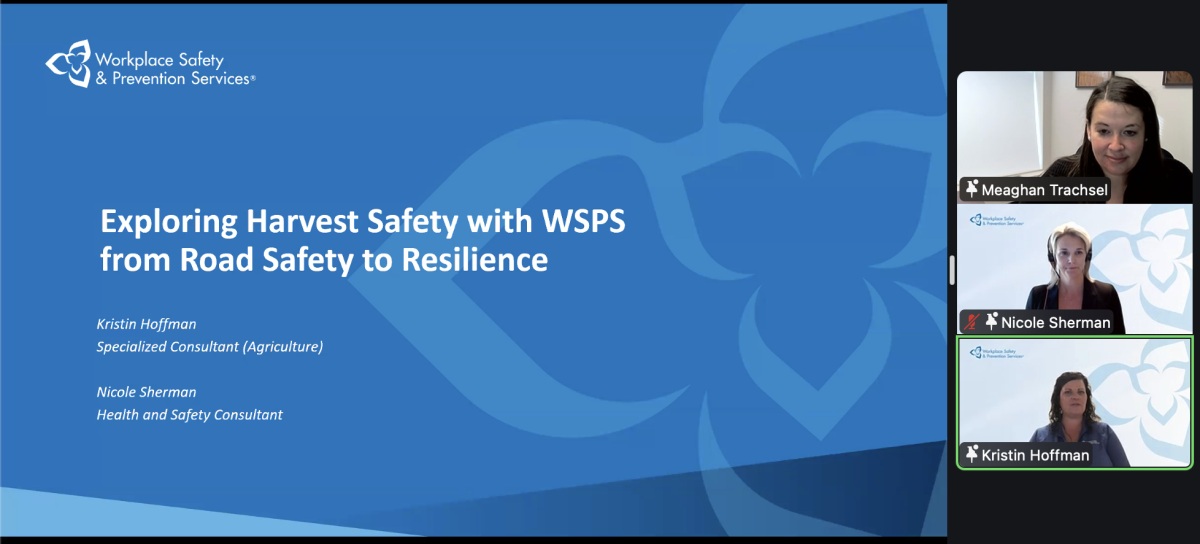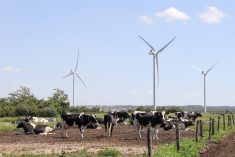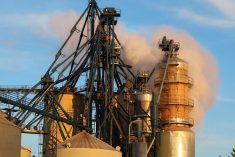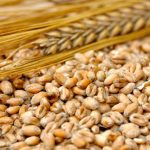Glacier FarmMedia—Opposition to the federal price on pollution ramped up last week as several premiers called for a meeting with the prime minister to discuss the issue.
Many have opposed carbon pricing since it was implemented in 2019 but the rhetoric has been heating up due to cost-of-living pressures.
The hike in the consumer levy earlier this month added 3.5 cents to a litre of gasoline. Farmers do have an on-farm fuel exemption but say the carbon price affects their costs throughout the supply chain.
Read Also

Exploring Harvest Safety
Kristin Hoffman of WSPS explains measures for increased farm safety around harvest season
Saskatchewan has estimated its farmers will pay $137 million this year.
Ontario premier Doug Ford, speaking at a farm last week along with farm leaders, called for the end of “this awful carbon tax.”
Agriculture minister Lisa Thompson said the Ontario government is listening to farmers who say carbon pricing is eroding their ability to farm.
The price rose from $65 per tonne to $80 on April 1 and is projected to be $170 per tonne by 2030.
Despite the exemption, farmers still pay the tax on heating fuel, electricity, natural gas and propane for grain drying, and the indirect cost from others such as transporters.
The Agricultural Producers Association of Saskatchewan has calculated the impact of the federal tax since it was first applied at $20 per tonne.
Using an example of a 62-bushel wheat crop in the black soil zone, APAS found the tax added $1.93 per acre that first year.
This year, farmers will pay an extra $7.42 per acre, and by 2030 the additional cost will be $17.31.
President Ian Boxall said farmers always end up paying the extra costs.
“Take for instance the estimated staggering 50 per cent increase allocated to rail transportation costs, a massive $57 million that Saskatchewan grain producers are expected to shoulder,” he said in a news release. “This amounts to an overwhelming $21 million more than last year alone. Why should farmers pay the railway’s carbon tax?”
APAS applied its calculations to a 5,000-acre grain farm growing wheat, canola, barley, peas and oats in the black soil zone.
They found the total carbon cost ranges from $22,678 to $30,033 depending on specific grain drying practices.
Boxall said the consequences for Saskatchewan farmers are huge and negative.
APAS, and many others, have repeatedly called for Parliament to pass Bill C-234 in its original form. That would provide a carbon price exemption for natural gas and propane used to dry grain and heat barns and greenhouses.
That bill was amended in the Senate to remove farm buildings from a possible exemption and has been stuck in parliamentary debate for months.
There is a refundable tax credit available to eligible farms. For 2023 it is $1.86 per $1,000 of eligible expenses in Ontario, Manitoba, Saskatchewan and Alberta and $1.40 in the Atlantic provinces. But critics have said that amount covers only a fraction of what they pay and isn’t the correct way to address the problem.
—Karen Briere writes for the Western Producer











